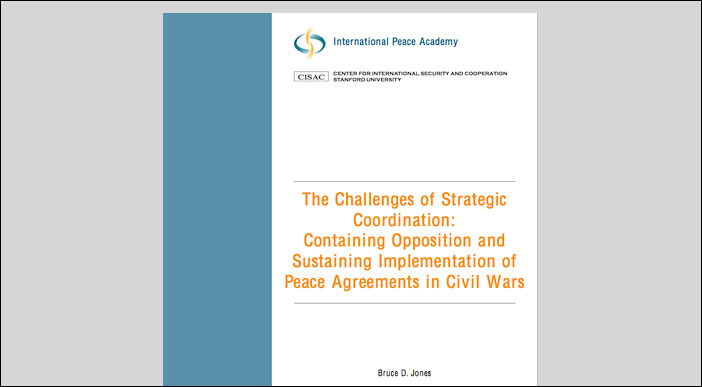 International actors face recurrent challenges of coordinating their approaches and their efforts to implement peace agreements––in short, challenges of strategic coordination. Their efforts to end civil wars suffer from an inconsistency in conflict management strategies across different phases of the peace process; those who mediate agreements sometimes fail to coordinate with those who must implement them. All too often, different actors pursue divergent strategies within a given phase of the peace process. Or, when they do agree on a strategy, their efforts to operationalize it are, at times, diffuse and contradictory. Strategic coordination is particularly vexing for peace implementation and for postconflict peacebuilding because many more actors are engaged in implementation than in negotiation and the international policy process takes on much greater complexity.
International actors face recurrent challenges of coordinating their approaches and their efforts to implement peace agreements––in short, challenges of strategic coordination. Their efforts to end civil wars suffer from an inconsistency in conflict management strategies across different phases of the peace process; those who mediate agreements sometimes fail to coordinate with those who must implement them. All too often, different actors pursue divergent strategies within a given phase of the peace process. Or, when they do agree on a strategy, their efforts to operationalize it are, at times, diffuse and contradictory. Strategic coordination is particularly vexing for peace implementation and for postconflict peacebuilding because many more actors are engaged in implementation than in negotiation and the international policy process takes on much greater complexity.
In difficult conflict environments, such problems make peace efforts vulnerable. They create opportunities for opponents of peace to maneuver between the cracks of a diffuse implementation strategy, to manipulate implementers against one another, and, sometimes, to derail a peace process altogether. In less difficult conflict environments, such problems may not be as fatal, but they can add costs, reduce effectiveness, and slow success. In short, incoherence and inconsistency can undermine the viability or the effectiveness of implementation efforts.







